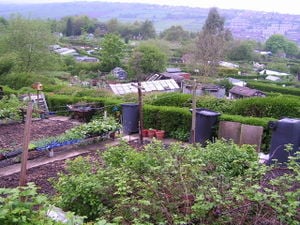
 The climate crisis leaves students feeling helpless – what universities can do to empower them, theconversation.com (Jul 24, 2023)
The climate crisis leaves students feeling helpless – what universities can do to empower them, theconversation.com (Jul 24, 2023)
This article focuses on information specific to United Kingdom. Please see our Community research page for a topic overview.
Peer Research[edit | edit source]
- What is peer research? icstudies.org.uk
- Ten Principles of Peer Research icstudies.org.uk
Resources[edit | edit source]
Networks[edit | edit source]
- Peer Research Network, icstudies.org.uk
News and comment[edit | edit source]
2021
The Young Foundation to train 30 young people as peer researchers, through the Government's Kickstart Scheme, May 5[1]
Institute for Community Studies[edit | edit source]
The Institute for Community Studies at The Young Foundation is a community research and evidence centre based in Toynbee Hall, East London. Originally founded in 1953 by Michael Young as the Institute of Community Studies, it is probably best known for the 1957 report by Young and his colleague Peter Willmott, Family and Kinship in East London, which argued for the continuing importance of community ties in the age of the welfare state. Described as a sociological "phenomenon", the original Institute influenced a generation of sociologists and social historians.
The Institute for Community Studies at The Young Foundation is a community research and evidence centre based in Toynbee Hall, East London. Originally founded in 1953 by Michael Young as the Institute of Community Studies, it is probably best known for the 1957 report by Young and his colleague Peter Willmott, Family and Kinship in East London, which argued for the continuing importance of community ties in the age of the welfare state. Described as a sociological "phenomenon", the original Institute influenced a generation of sociologists and social historians.
Other key publications from that period include:
- The Family Life of Old People: An inquiry in East London (Peter Townsend, 1957).
- Widows and their Families (Peter Marris, 1958).
- Family and Class in a London Suburb (Peter Willmott and Michael Young, 1960).
- Family and Social Change in an African City: A study of rehousing in Lagos (Peter Marris, 1961).
- Education and the Working Class (Brian Jackson, Dennis Marsden, 1962).
- Living with Mental Illness: A study in East London (Enid Mills, 1962).
- The Evolution of a Community: A Study of Dagenham after forty years (Peter Willmott, 1963).
- Human Relations and Hospital Care (Ann Cartwright, 1964).
- Innovation and Research in Education (Michael Young, 1965).
- Adolescent Boys of East London (Peter Willmott, 1966).
- Working Class Community (Brian Jackson, 1968).
- The Symmetrical Family: A study of work and leisure in the London Region (Michael Young and Peter Willmott, 1973).
The original Institute was also the main vehicle through which Young created over 60 organisations including the Open University and the Consumers' Association (aka Which?). In 2005, the Institute of Community Studies merged with the Mutual Aid Centre and was renamed The Young Foundation in honour of Lord Young. The current chief executive of The Young Foundation is Helen Goulden.
Under Helen Goulden's leadership the Institute for Community Studies was re-launched in 2019 as a part of The Young Foundation with support from the Power to Change Trust, Friends Provident Foundation and a large private donation, with a remit to promote positive social, economic and environmental outcomes by better understanding how government and philanthropic interventions affect – and are affected by – the individuals, families and businesses that make up our local communities.
The Institute for Community Studies at The Young Foundation describes itself as 'a research and evidence centre, exploring what works for UK communities'. It places particular emphasis on the role of communities themselves in the research process, both in determining the research questions to be answered and through the use of peer researchers (also known as community-based participatory researchers) to collect evidence. In its first major publication, based on a coordinated series of national surveys and regional focus groups across the United Kingdom, the Institute identified seven priority areas for further research.
See also[edit | edit source]
local information can be found, or shared, via our many UK location pages